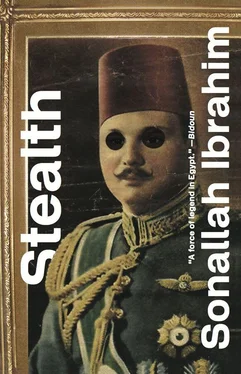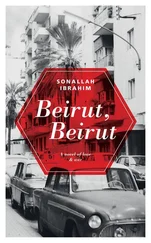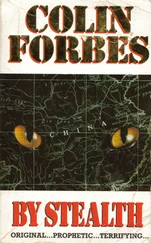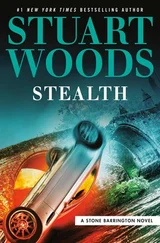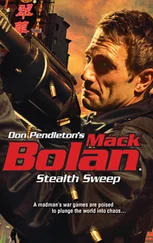Their talk moves on to the housing crisis. Father says: “Can you imagine that some apartments require an advance of 300 pounds, non-refundable.” The general picks up a picture magazine and says: “Did you see the sentence for the killing of Amin Othman? Anwar Sadat was found innocent.” He puts the magazine down and says: “He was an officer in my unit. I didn’t like him at all. He was slippery.” I pick up the magazine. I look at the picture of Sadat. His clothes are elegant. The knot of his necktie is weirdly small. His head and beard are neatly groomed. The barber had followed the trend of shaving off all the hair around the ears.
The general calls the maid and asks her to go find his two boys. They’re big and tall. They stand in fear at the doorway. The bigger one asks: “Did you want something, sir?” He orders them to play with me. We move to another guest room. All three of us sit on a thick, dark red carpet. The maid brings in a big tray of dried fruit and nuts. I grab a hazelnut and the nutcracker. They start up a two-way card game that is too fast for me to follow. The bigger one suggests they bet on whether Abou Hebaga will win at the London Olympics at the end of the month. I ask: “Who’s Abou Hebaga?” The smaller one says: “Can anyone not know the hero of Ahly Sporting Club?” His brother backs him up: “The greatest football player in the world!”
I get up and walk around the room. I sit on a couch. It has comfortable cushions dyed in dark colors. Pictures of the boys with their father and other relatives are hanging on the wall. I get up. The two boys are lost in their game. I sneak out of the guest room and into the living room. It is dark. At one end there’s a lighted room. I move close to it. I hear the sound of Quranic recitation. I peek in with care. A sheikh wearing a turban and a flowing cloak sits cross-legged on an oriental couch. His hand is on his cheek. He recites while rocking himself to the left and right. As the verse ends, he continues the rocking silently. I go back to the living room. The big boy suggests that we play hearts.
Father appears at the door with the general behind him. I follow him outside. We leave the villa and make our way back to the house. He stops us at the house and home shop. We buy a box of small glass teacups with colored inscriptions decorating its sides. He sets it on top of the sideboard and says that they are for Eid.
The calls of the yoghurt seller float up to us. He grabs an empty, brown-colored clay pot. We go into our room and open the door to the balcony. He calls to the vendor and hands him the pot. The vendor takes out a full container from the bottom covered with white cloth. He hands it up to father.
In the distance, the voice of the crier waking people up for the pre-dawn meal echoes through the quarter: “Wake up, sleepers in the night; make your stomachs full and right!” The sound of his drumbeats comes closer. He enters our alley. His face is hidden by the darkness. He stops in front of each house and calls on the people living in them by name. A tap of the drum comes after each name. He calls out Father’s name and then mine.
Father makes a plate of fried eggs. I ask him: “Where’s Fatima?” He says, “She’s celebrating Eid.”
We have our breakfast in the living room. He brings the teapot and pours some into two of our new glasses. He adds sugar and stirs. When I pick my cup up, the base of it breaks off and hot tea spills over the table. When he takes his cup, the same thing happens. He stands up and leaves everything sitting on the table. We go to wash our hands.
He drags the desk chair out to the balcony. Lights a cigarette. He asks me to look for a paper and something to write with. I bring him my homework notebook and my pencil. He takes out a sheet of paper. I stand next to him, watching him as he writes: “Eid, O Eid, you have come back anew. Remind us of old Eids or new ones preview.” He looks out at the alley, thinking. I can tell that he is trying to write new lines to finish the famous poem like he does each Eid. I say: “Well, aren’t we going out?” He doesn’t answer. After a second, he stands up in a huff. He gets out his shaving kit and puts it on the table. I bring him a cup of water. He gets his brush wet and then rubs it on the soap.
I get my new shirt. I pull up its collar and press a stiffener into the slots for it. I put on the trousers from my new suit. The material is heavy and rough. He tells me to just wear the trousers and shirt because it is very hot. I give in, but I don’t really want to. I make sure that my lucky Quran verses are rolled up in my back trouser pocket. I can hear the noise of the children in the alley. I rush to the balcony. They are all wearing their new clothes for the Eid. The girls have bows in their hair. They’re shouting all in the same breath: “Open up those coin sacks, hand us our gifts back, O halu !” They let off firecrackers. Samir has a strip of “Italian War” brand. Its pellets hit the ground and light up.
I turn around and walk back inside. I pace back and forth for a long time until he finishes shaving. He rubs his cheeks and under his chin with an aluminum roll coated in silver foil. He leaves his razor on top of the desk. He gets up. His clothes come off. His dress shirt goes on. He buttons it. A button snaps off and falls to the ground. I pick it up. He looks around in the upper drawer of the dresser until he finds a sewing needle and some thread. He tries to get the thread through the eye of the needle but can’t. He gives them to me. I wet the end of the thread in my mouth and stick it through the eye with no problem.
He puts on the trousers that go with his white suit. He fastens his suspenders. “Bring me my shoes.” I bring him the brown shoes with the white tips. I clean them with a piece of cloth. He sits down on the edge of the bed and presses his feet into the shoes, then he ties their laces. He sits there for a second, staring at the floor. I hurry him up: “Come on now.” He stands up and puts on the suit jacket. He takes his fez off the hat rack and puts it on. He twists each end of his moustache, turning them upward with his fingers.
He closes the two glass panes of the window, and looks around for the key in the stack of scattered clothes and covers on top of the bed. He grabs the white parasol hanging on the rack. He presses on its handle to open it. A long tear appears on one side and he throws it to the side in disgust. He reminds me not to forget my English textbook and my homework notebook.
We leave the room and lock the door. Fatima is there at the door to the storage room. “Happy holidays, Sidi. Come back safe.” He gives her money for the Eid and she kisses his hand: “God preserve you, Sidi.” The late night crier faces us at the end of the alley. For the first time, I see his face in the daylight. It is tanned and covered in wrinkles. He says to father: “Happy holidays, Bey,” and Father gives him half a franc.
The grocery shop is closed. We make it to the square. Swings have been set up in front of the entrance to Husseiniya Street. We get on the tram at the front door next to the driver. I twist my neck to see the signs pasted overhead: “No Spitting.” “Do not talk to the driver.” We get off in Abbasiya Square, and get on the white tram. We get off at Ismailiya Square. Father takes a handkerchief and wipes the sweat off his face. He moves it around to the back of his neck and under his collar. He takes off the fez. He wipes off his bald spot then runs the handkerchief along the lining inside his fez. Puts the handkerchief on top of his head so its edges hang down on his forehead. He presses the fez down over it.
We go into the street and look up towards the house facing us at its end. He asks: “Do you think they’re home.” The sun is scorching and he has a watermelon under each arm. He takes off his fez and wipes away the sweat on his bald head with a handkerchief. The windows of the balcony are closed. We go back without a sound; his face looks sad.
Читать дальше
